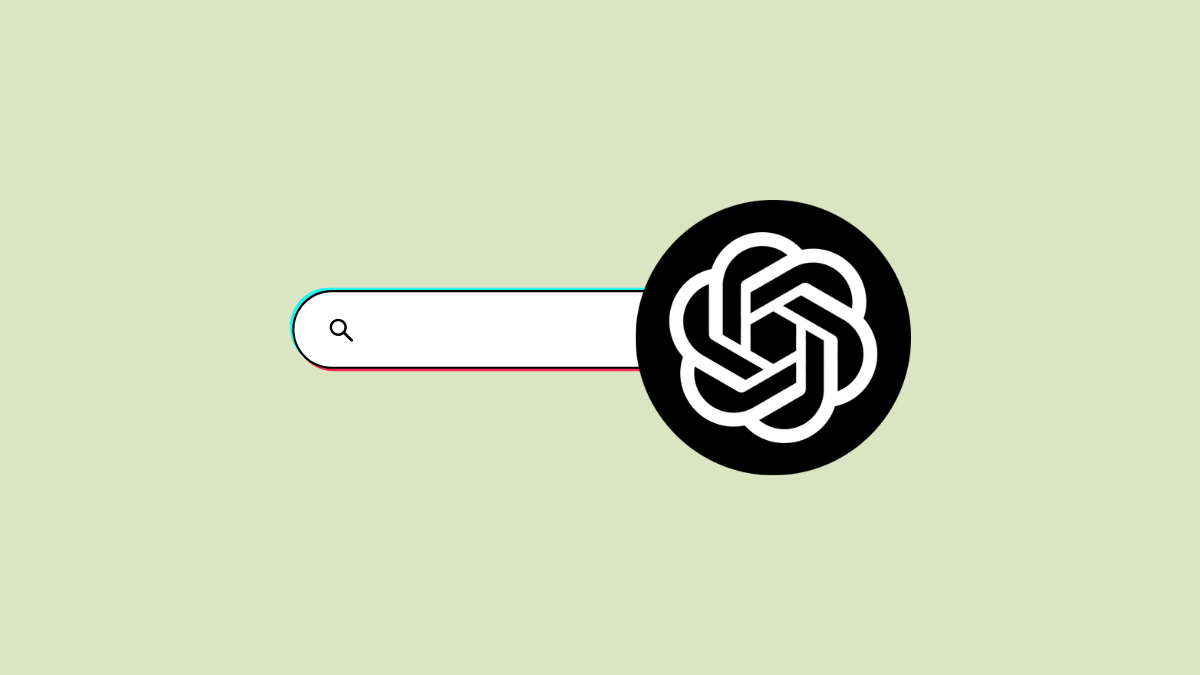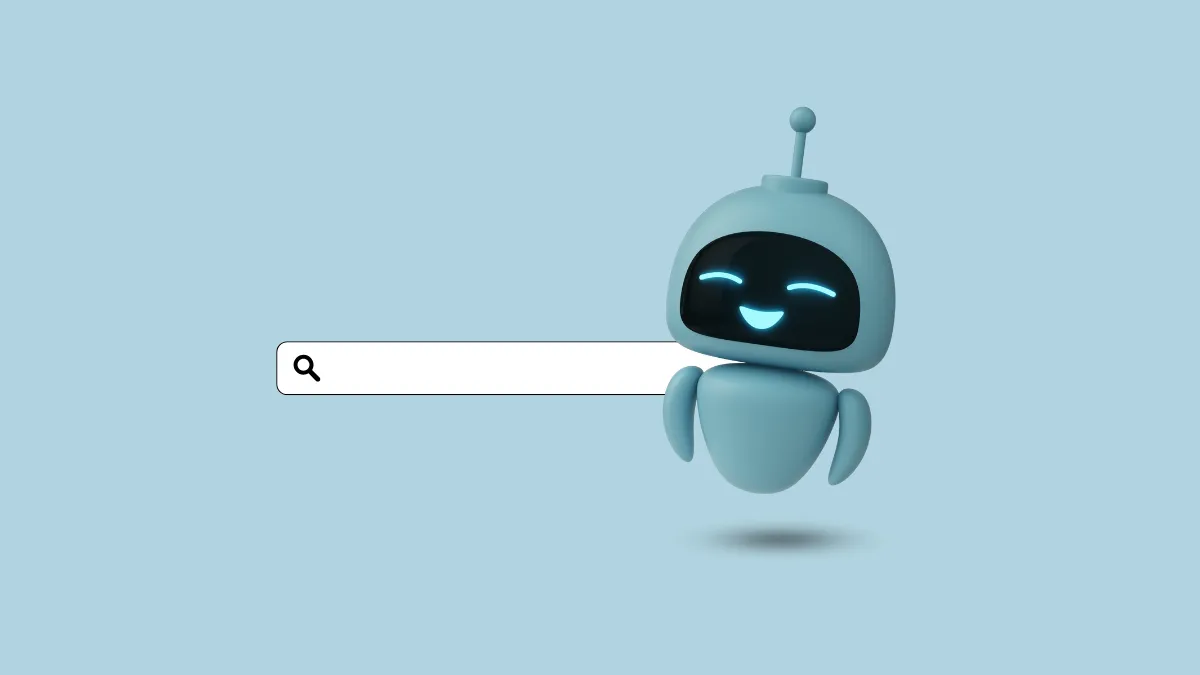Ever since OpenAI released ChatGPT, there was a keen sense of apprehension in the air about the company entering the search market. And it wasn't misplaced; a few months ago, a prototype for SearchGPT was released.
Now, OpenAI has integrated Search right into ChatGPT. Anyone with a Plus or Team plan already has access to the search features, with Enterprise and Edu users getting access in the coming weeks. Moreover, free users who were on the waitlist for SearchGPT also have access; other free users will get access in the upcoming months.
Furthermore, OpenAI has also released a Chrome extension for ChatGPT Search so you can replace Google (or any other search engine) in your browser's address bar with it and make it your default. But is ChatGPT even poised to take on this responsibility? How well does it actually perform as a search engine?
So I decided to try making ChatGPT my default search engine for a while to give it a proper shot and include it in my workflow. After using it for a while, the feelings are mixed. It's a decent enough experience, but not enough to replace the traditional search engines we have come to use.
There are some use cases where ChatGPT search fares better than Google and others where you simply can't even think of ChatGPT-ing instead of Googling, at least not yet. Read on for my hands-on review.
User Experience
With Search integrated right into ChatGPT, it's quite easy to use it. Search is available on ChatGPT web as well as the mobile and desktop apps.
ChatGPT Search is available with the 4o and 4o-mini models in the chatbot. When using either of these models, ChatGPT can either trigger a search when it thinks appropriate or you can manually click the 'Search' button to trigger one. Whether you're using the web app or the dedicated mobile/ desktop app, using ChatGPT Search is a breeze.
It also makes it easy to view the sources and explore them further. On the web, sources and further search results appear in a sidebar and if you previously opened it, ChatGPT opens it for all subsequent queries until you manually close it.
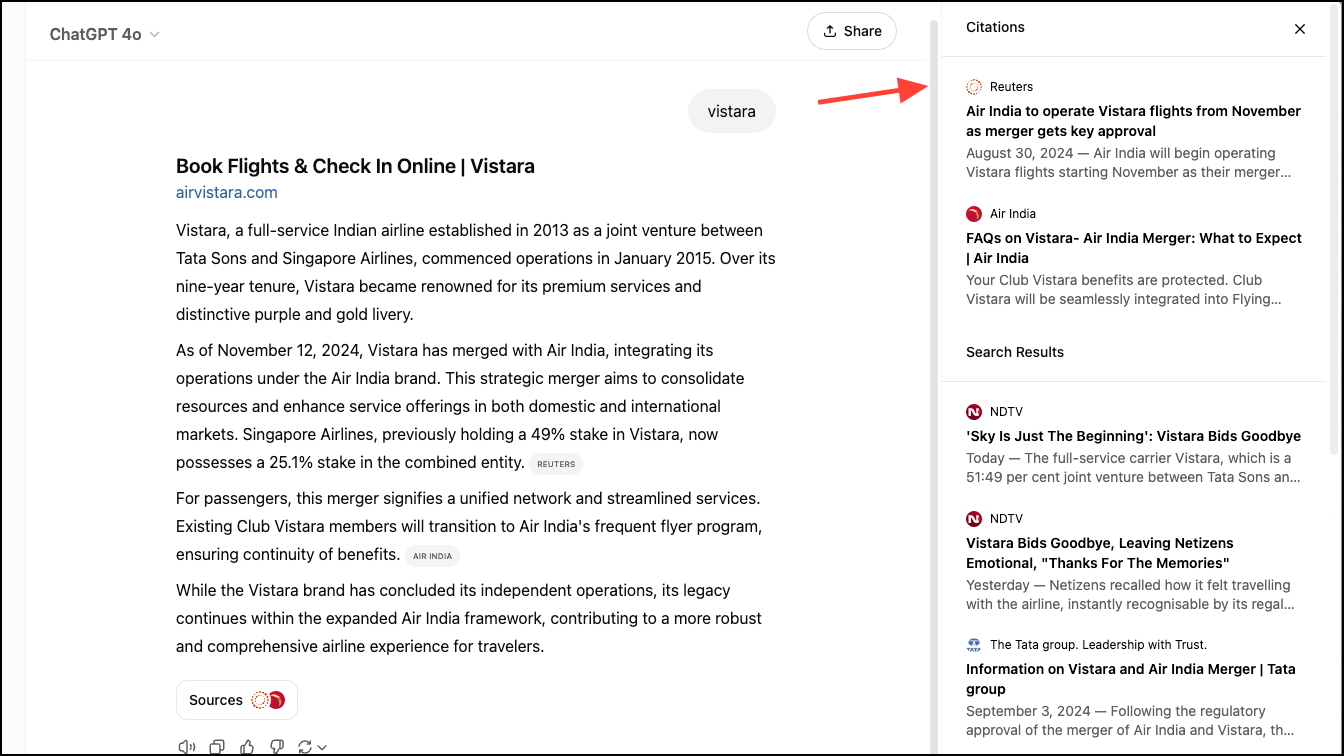
If you install and enable the ChatGPT search extension on your browser, every query you put into your address bar opens a new tab with a new chat in ChatGPT that uses the 4o search model.
While it undoubtedly makes the task of searching easier, there should be some options to tweak the behavior. With every query starting a new chat, this results in your ChatGPT chat history becoming too cluttered.
Performance
ChatGPT search is mostly fast and gets back with an answer in no time. Only once did it take so long to return a response that I was worried I'd broken it. I'd previously asked Perplexity AI the same query and it came back with a response in no time. Unfortunately, I can't find the chat to share the query here.
Real-time Information
ChatGPT Search is not only good for general queries, but you can also use it for any real-time information like weather, sports, stocks, news, etc.
I decided to test it with a little tricky query and asked it how could I get to Diljit's concert venue in New Delhi. Now, by the time I asked ChatGPT about this, the concert was already over. But ChatGPT handled it gracefully. It told me where the concert was held, on what dates, and dates for upcoming shows in case I wanted to attend those, and how to book the tickets; it didn't tell me that the tickets for all shows were already sold out and can't be booked from the link it provided, though.
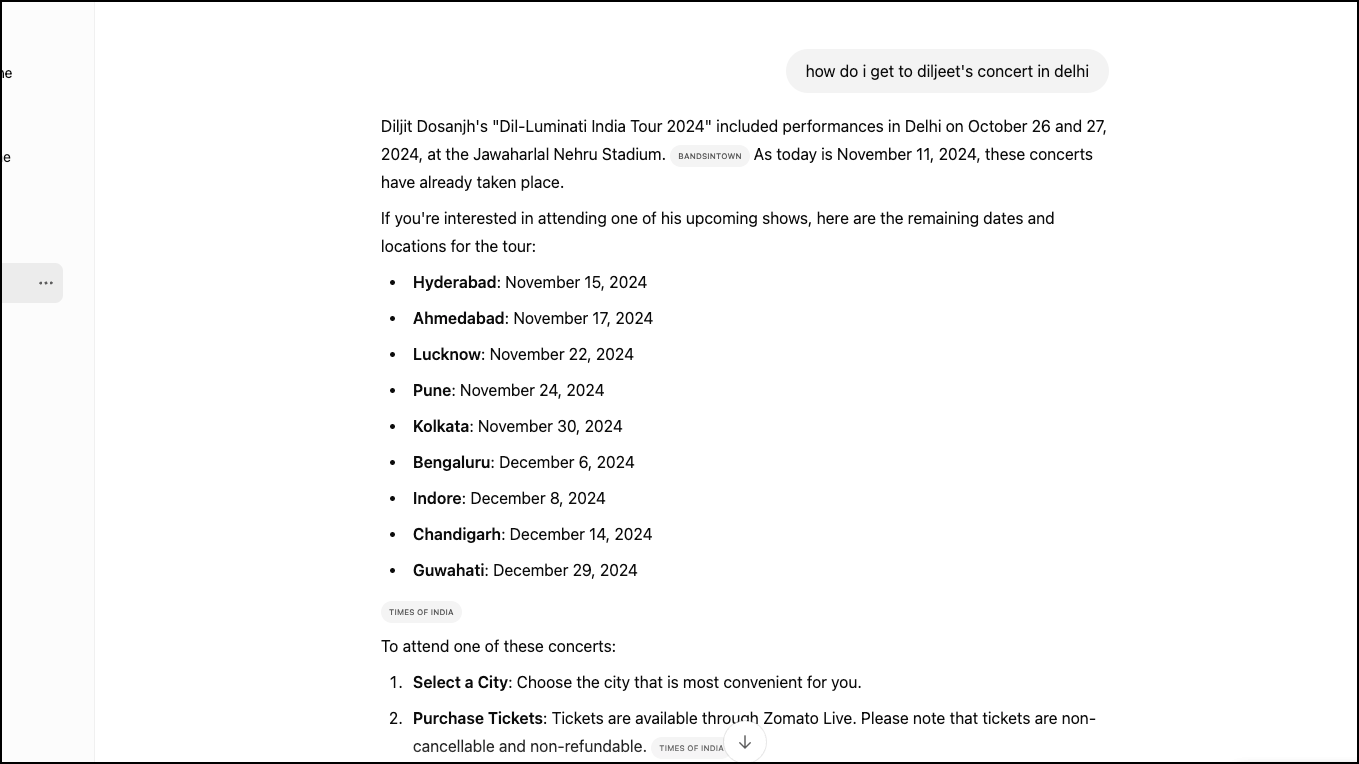
I then asked it for further information, like places to eat nearby. Now, the fact that it can retain context is amazing so you can ask follow-up questions in natural language.
It gave me a list of places to eat along with a map. However, its definition of "nearby" was quite loose and it skipped all the actual nearby places; the nearest it suggested was 30 minutes away, and don't even ask me about the furthest one. Google does an excellent job of returning a list of nearby places.
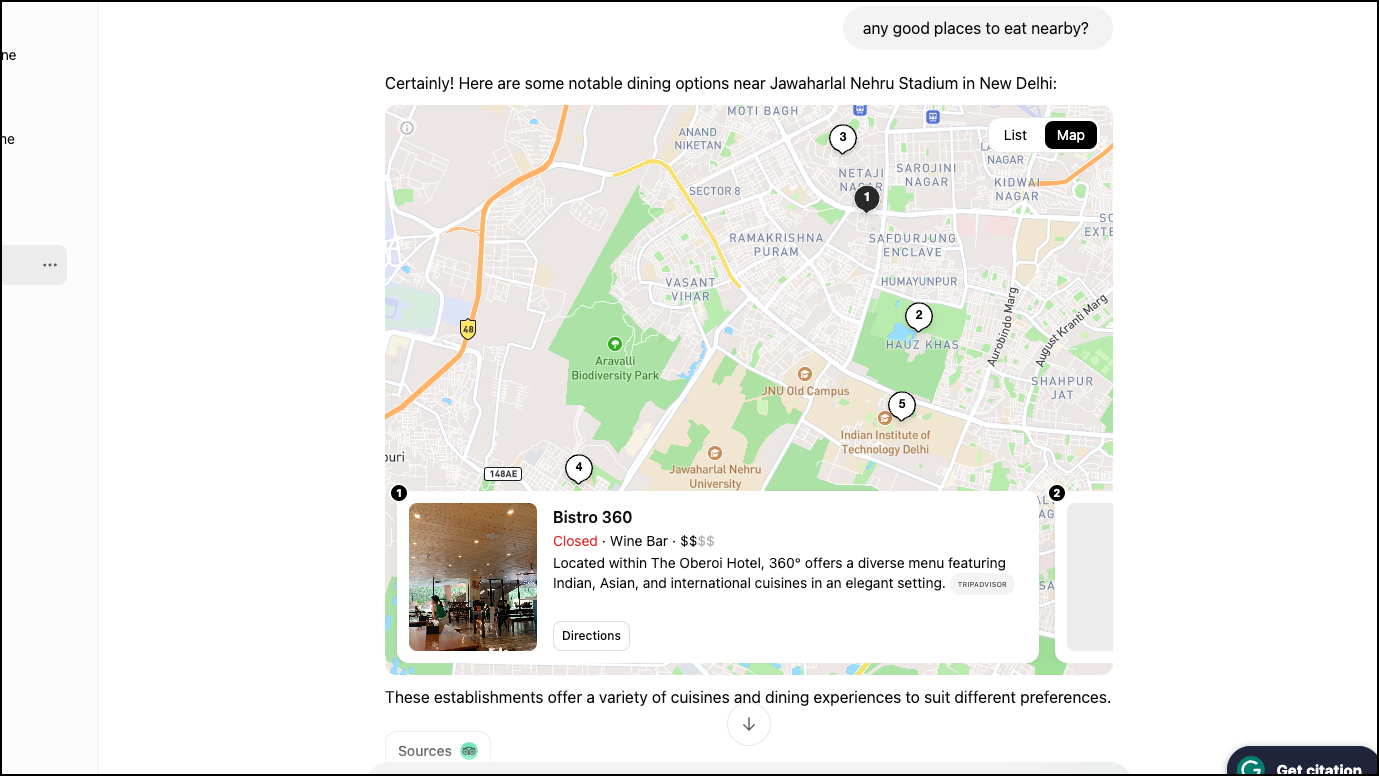
ChatGPT, with its intelligence, should have performed better at this job. Perhaps, the fact it's relying entirely on sources is the reason for the botched job. But OpenAI definitely needs to improve this aspect.
Also, it did fail to provide up-to-date information once; Canva was recently experiencing an outage and when I searched for it, ChatGPT told me it was working fine.
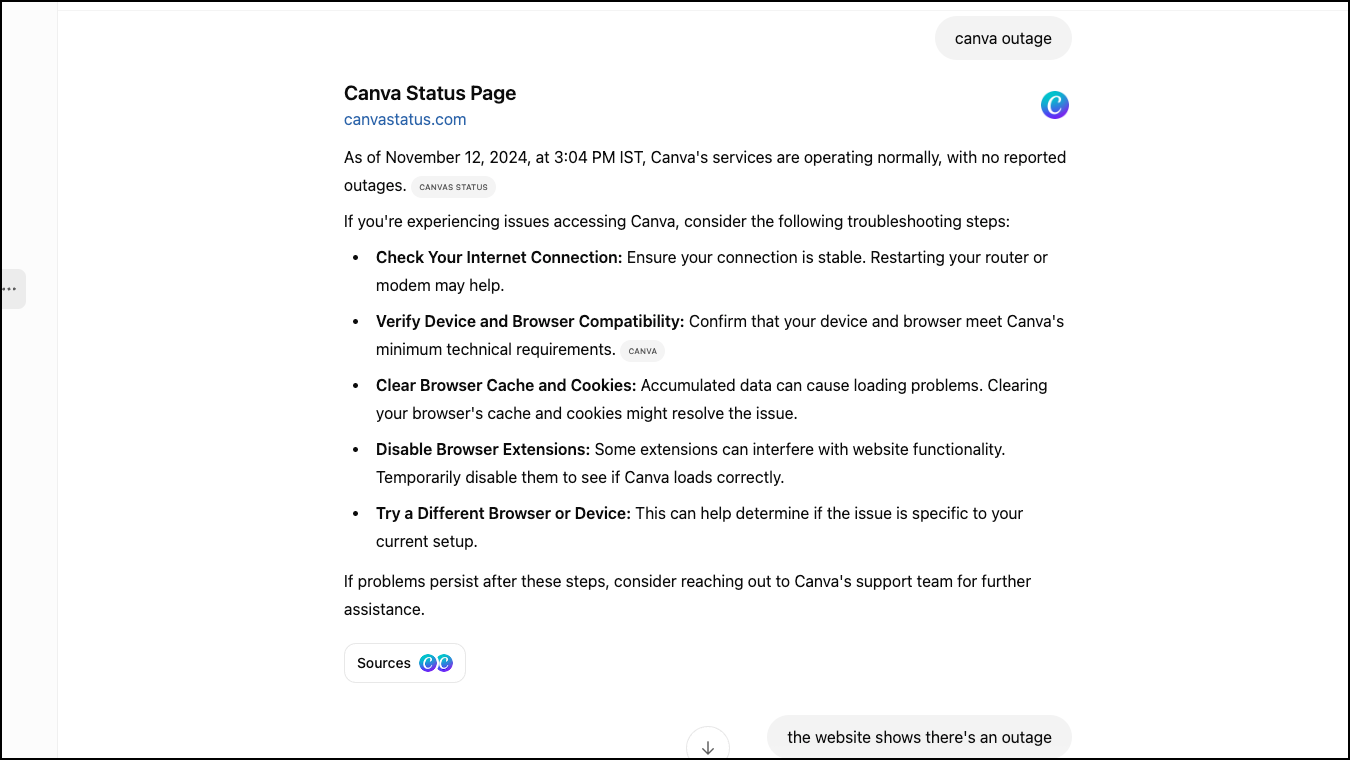
I went to Canva's website it linked to check the status and the website clearly mentioned there was an outage.
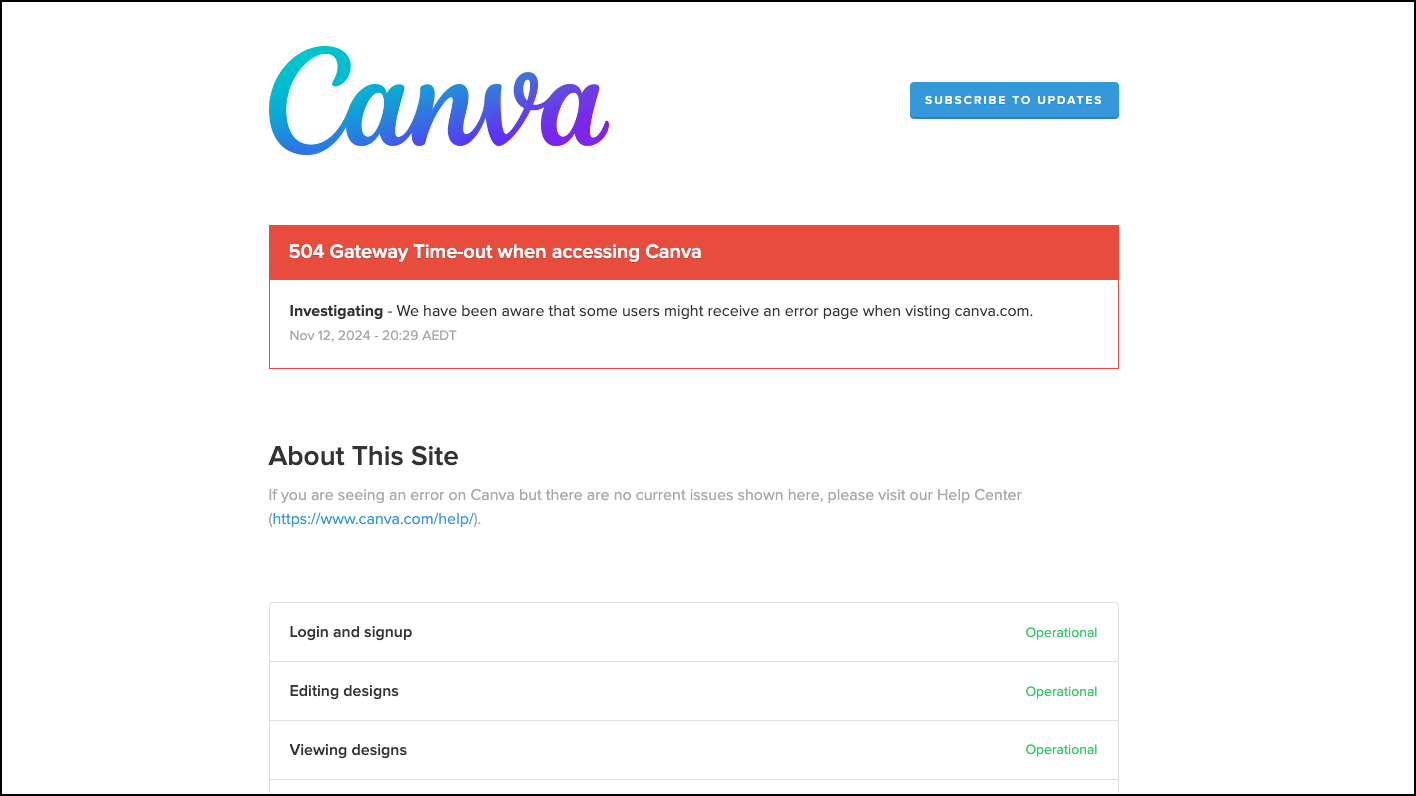
It took me multiple attempts to get ChatGPT to correct itself. Copilot and Perplexity AI, however, got it right on their first try.
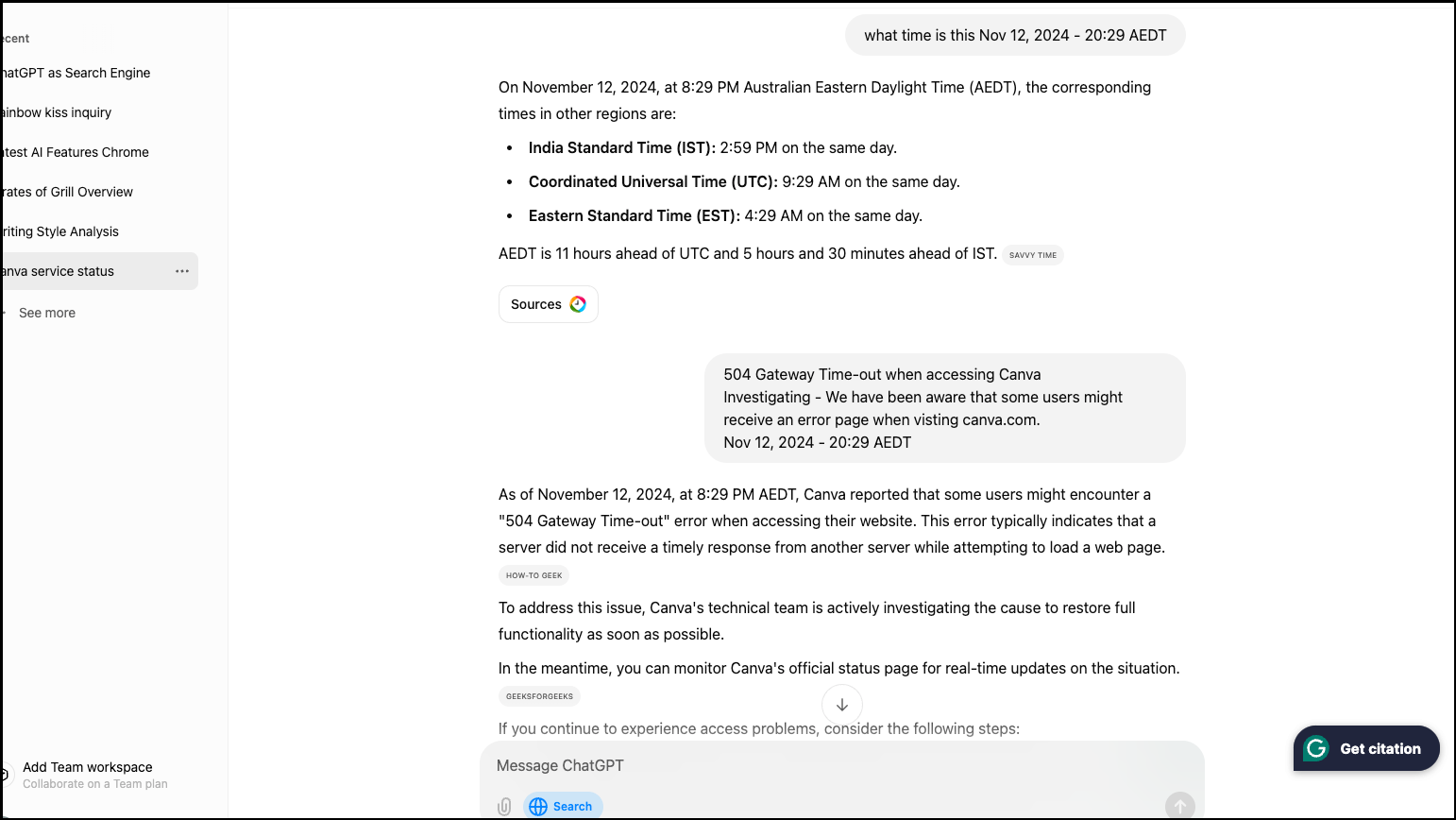
Results contain mostly text
With traditional search, we've come to expect images and videos as part of the search results. For a lot of people, videos are a better source of information than reading huge chunks of text. But if you're using ChatGPT Search, chunks of text are what you'll mostly get.
Even though ChatGPT is capable of returning videos and images, it's a rarity. And it isn't even capable of returning other rich results like Google. If you're searching for a restaurant nearby, for example, Google returns all the right results – the location, timings, reviews, opening hours, etc. along with the other links.
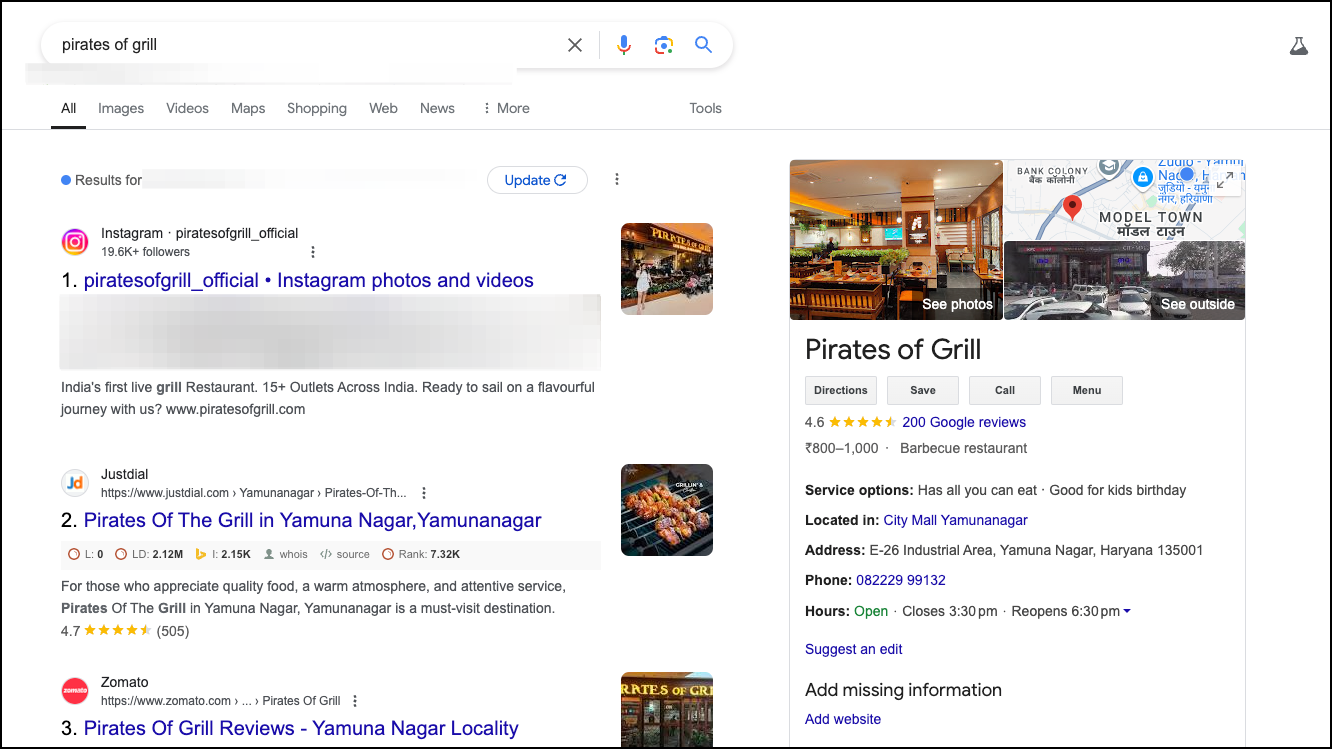
In the case of ChatGPT however, it ended up giving me information about the other chains of the restaurant in faraway cities, without any mention of the one in my own city.
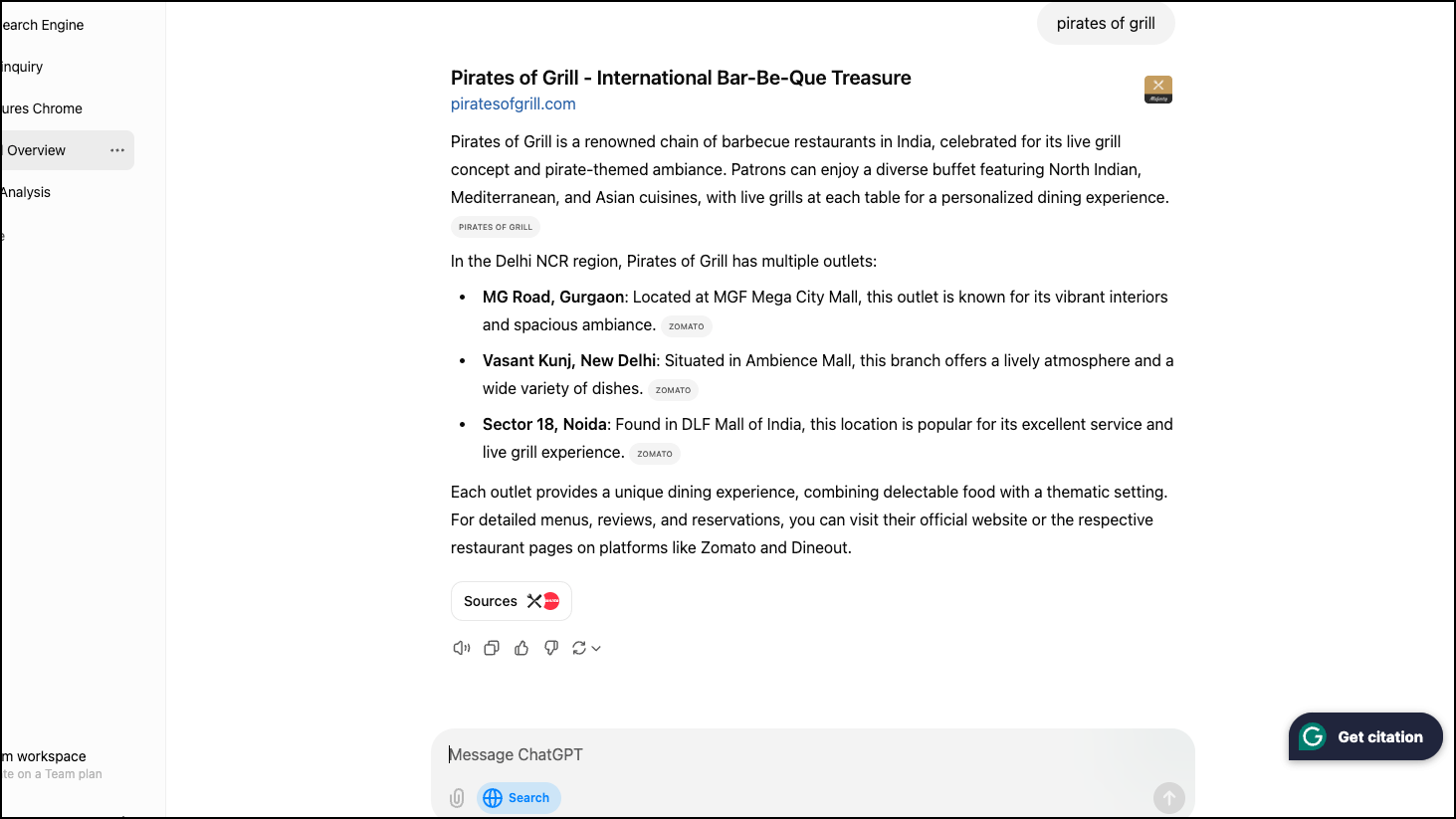
I would like my search engine to present the right information on the first try as would most of us in this busy world. ChatGPT does have access to location information since it uses it for weather; it needs to put it to other use as well.
Cleaner Interface
One thing with ChatGPT's response is that there's virtually no clutter at all. There are no ads, no related questions, and no other information overload. For some people, that'll be a great experience.
For others, not so much. While everyone would certainly appreciate the lack of ads, I'm not so sure about the lack of related questions. Many times, when I am trying to research something (especially when I'm not sure where to start), it's hopping from one topic to another related topic that points me in the right direction. With ChatGPT, I hit a wall. If nothing else, ChatGPT should perhaps have some follow-up questions, as Perplexity AI does.
Limits and Restrictions
Alas, ChatGPT search, much like the chatbot, has a lot of restrictions and won't give you a response for a lot of queries (mainly NSFW). If it wants to be a search engine in its own right, it cannot afford to engage in moral policing.
People aren't interested in a search engine that tells them what's right or wrong (when it's not downright refusing to respond, that is). People want their search engine to come back with the information if it exists. Plain and simple.
Availability
One of the things that putting ChatGPT at a disadvantage right now is that it's not available for free users. Even when it will be available for free users, there is talk of the number of queries being limited by ChatGPT 4o's usage limits (according to your plan).
Sometimes, when you're on a search spree, you're putting in one query after the other. How would this work with usage limits? I haven't yet encountered this problem, but I didn't also go on one such "spree". And if I ultimately decide to not pay for Plus anymore, would I still not encounter this problem on the free plan (given that Search has rolled out to free users by then)?
That's something OpenAI needs to get on top of if it wants to become a dominant player in the search field.
💡 Meanwhile, if you're a free user and experiencing FOMO, here's something for you.
So I obviously had a thought of comparing ChatGPT search with Copilot, given OpenAI's and Microsoft's entangled history. I found a really interesting thing. ChatGPT and Copilot gave exact word-to-word responses for multiple queries.
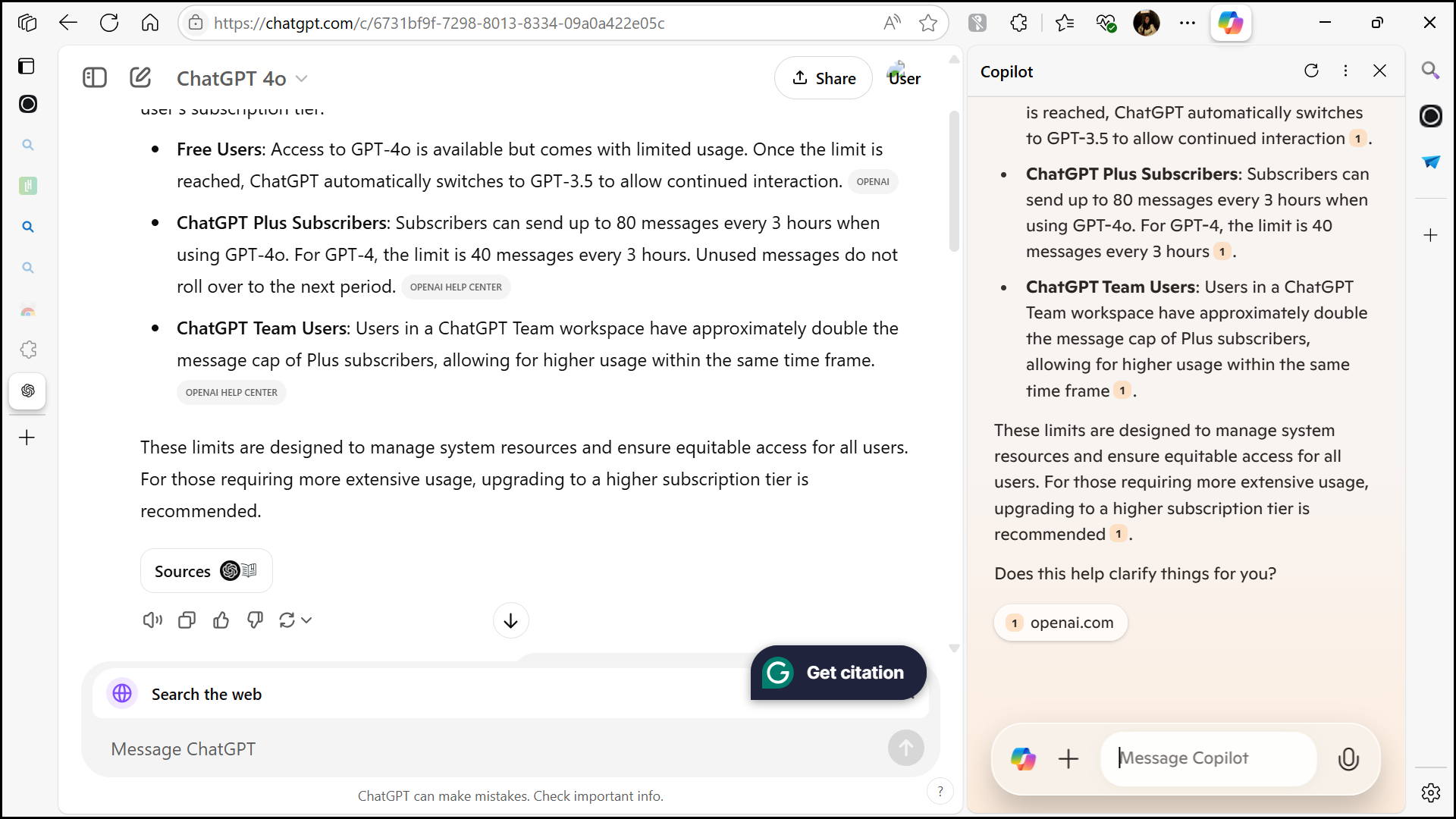
I ran multiple tests; for some queries, the responses matched more than 90% but never less than this.
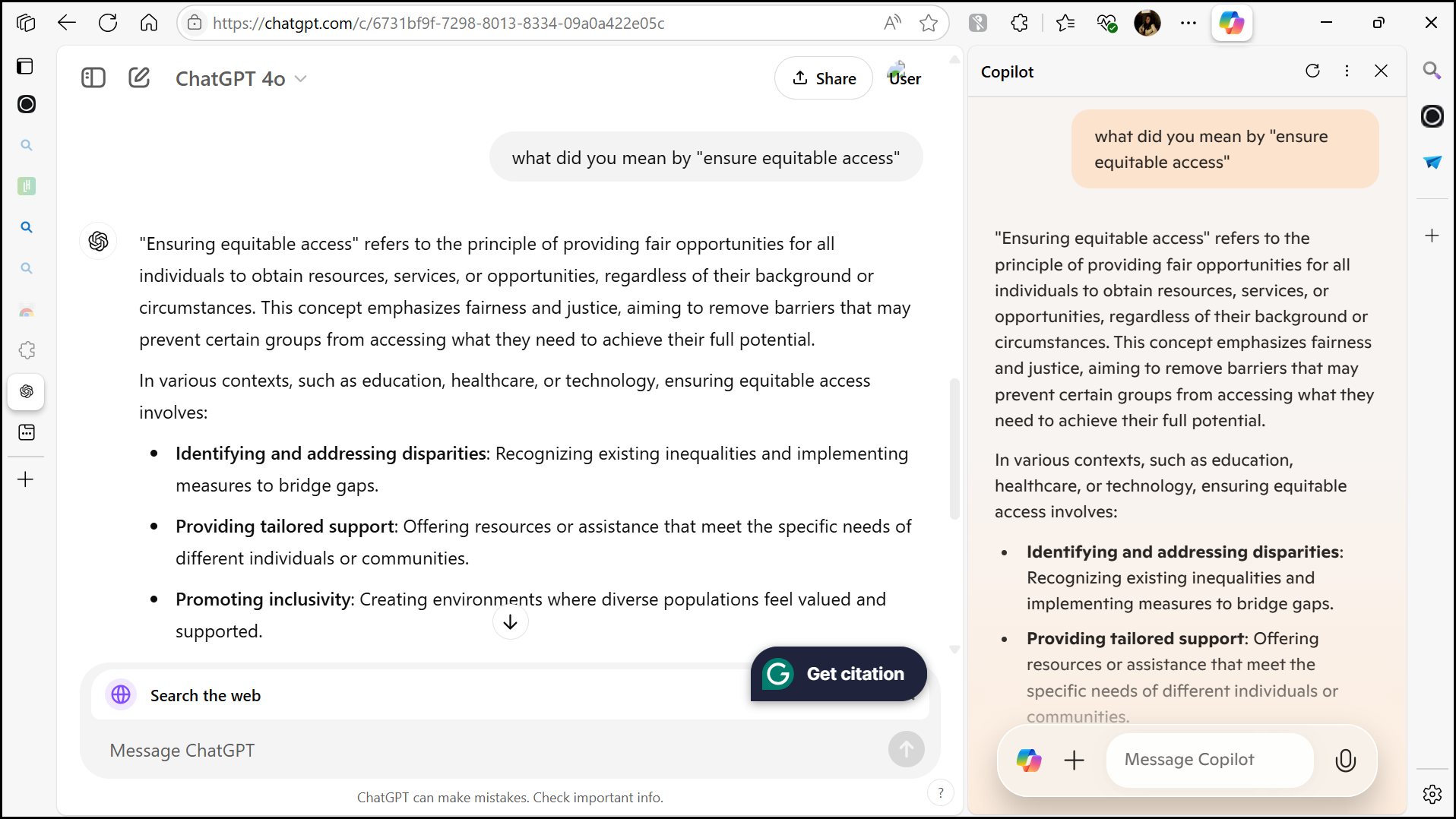
So, if any free users are experiencing FOMO on OpenAI's delay in releasing ChatGPT search for you, head over to Copilot.
The verdict
ChatGPT Search is a move in the right direction, but for me, it's nowhere even closer to replacing Google. It gets a lot of stuff right, and for some stuff, like deep research where you could benefit from ChatGPT's ability to retain context, it'll be the better choice. But to become the default search engine for most people and replace Google? A lot needs to change and improve for that, especially if it wants to become the default search engine on mobile, where on-the-go searches need to be quick and efficient.
Meanwhile, you could add ChatGPT as a custom search engine to your address bar instead of making it the default and get the best of both worlds.
